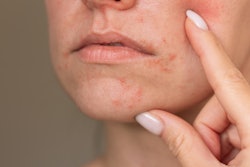Unlike traditional antiseptic mouthwashes, natural herbal-based rinses may kill harmful bacteria while leaving beneficial microbes intact, according to researchers from the Rutgers School of Dental Medicine in New Jersey.
The natural rinse reduced harmful bacteria like Fusobacterium nucleatum while preserving beneficial microbes unlike conventional rinses, which killed both, according to a university press release dated July 1.
"We're moving from eradicating all bacteria to focusing on selectivity,” Dr. Georgios Kotsakis, the dental school’s assistant dean for clinical research and lead author of the study, said in the release.
Overuse of strong antiseptic rinses has been linked to broader health effects, including increased blood pressure and disrupted nitric oxide signaling. While antiseptic rinses may be useful short term for certain conditions, experts caution against their long-term use, according to the release.
Many mouthwash brands promote their ability to kill 99.9% of germs, but this approach may harm oral health by killing both harmful and beneficial bacteria. In the study, the research team compared a natural rinse called StellaLife VEGA Oral Care with two conventional products: prescription chlorhexidine and over-the-counter Listerine Cool Mint.
Researchers exposed different oral bacteria to each rinse and monitored their growth over several days. The natural rinse selectively killed harmful bacteria, including Fusobacterium nucleatum and Porphyromonas gingivalis while preserving beneficial species such as Streptococcus oralis and Veillonella parvula, according to the release.
In contrast, chlorhexidine and Listerine showed no such selectivity, killing both harmful and helpful microbes. Furthermore, chlorhexidine was especially harsh. The findings support a growing shift toward managing oral bacteria rather than eliminating them entirely.
However, because the study was conducted in petri dishes and funded by StellaLife, further research is needed to confirm real-world benefits, according to the release.
“Randomized clinical trials are the next step,” Kotsakis said.




















